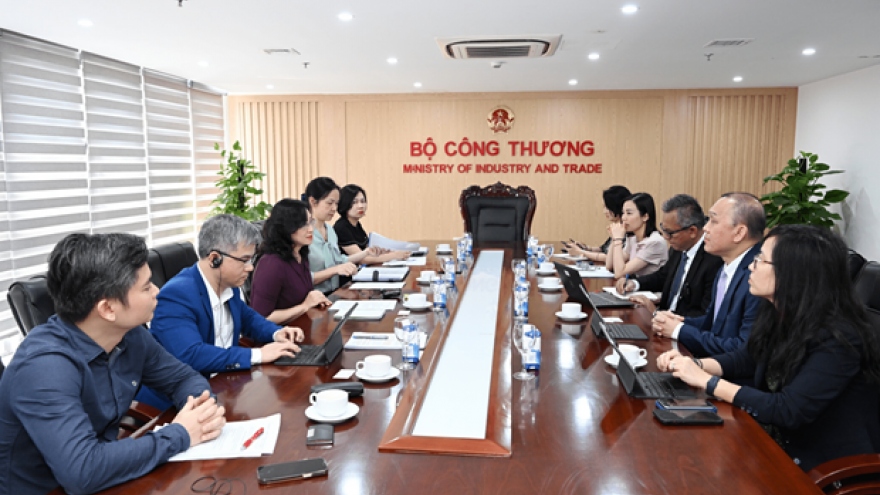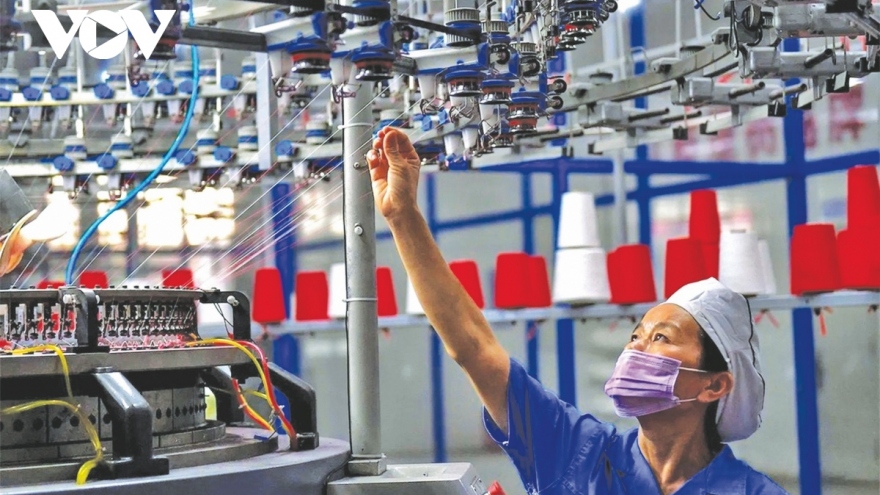Vietnamese FDI performance remains steady amid global uncertainties: WB
VOV.VN - Steady FDI commitment and disbursement reflects the continued interest of foreign investors’ in business opportunities in the Vietnamese market despite global uncertainties, according to the World Bank (WB) in its Vietnam Macro Monitoring edition for August.
The report outlines that the industrial production index increased marginally by 2.6% on-year in August, due to the continued expansion of industrial production for domestic consumption and a slight pickup in monthly export performances during the May to August period.
Retail sales grew by 7.6% annually in August, compared to 5.1% on-year in July, but still lower than pre-COVID levels of between 11% to 12 %. While sales of goods increased marginally, sales of services continued to register robust growth, largely due to the expansion of tourism and hospitality services.
Exports and imports of goods continued to contract by 7.3% on-year and 8.1% on-year respectively in August. However, monthly performances of exports and imports have been improving sequentially since May, therefore suggesting that the slump in exports may have bottomed out.
The report highlights that FDI performance remained steady amid global uncertainties. Indeed, FDI commitment reached US$1.9 billion in August, marking a decrease of 32% compared with July.
However, cumulative FDI commitment for the first eight months of the year amounted to US$18.1 billion, 8.2% higher than the same period seen in 2022. FDI disbursement remained steady, reaching US$1.5 billion in August, representing an increase of 23.6% compared with a year earlier. Cumulative FDI disbursement to August reached US$13.1 billion, comparable to the same period of 2022.
The CPI inflation ticked up from 2.1% on-year in July to reach 3.0% on-year in August, thereby reversing the preceding six months downtrend, with food and housing continuing to be the two major contributors.
Credit growth rose slightly to 9.4% on-year in August from 9.0% on-year in July, still far below the levels seen over recent years which reflects continued weak investor confidence and private sector investment.
The monthly budget balance registered a deficit of US $2.1 billion in August, while the cumulative budget deficit to August was estimated to be US$2.3 billion. As of the end of August, revenue collection decreased by 9.1% on-year due to slowing economic activities and public expenditure increased by 15.2% on-year, with this largely being due to an annual increase of 40.3% in public investment disbursement.
While the export slump may have bottomed out and domestic consumption remained resilient, credit growth continued to be slow, a factor reflecting weak private domestic investment and investors’ confidence.
According to WB economists, recent upward movements in terms of global energy prices warrants close monitoring of CPI inflation. This may also prevent the SBV from loosening monetary policy further as the continuation of tight global financial conditions should see flexible FX management to accommodate external conditions.
Moreover, further acceleration of public investment disbursement could support aggregate demand and economic growth in the short run, while focusing on priority green and resilient infrastructure and human capital investments which will help bolster long term economic development.




